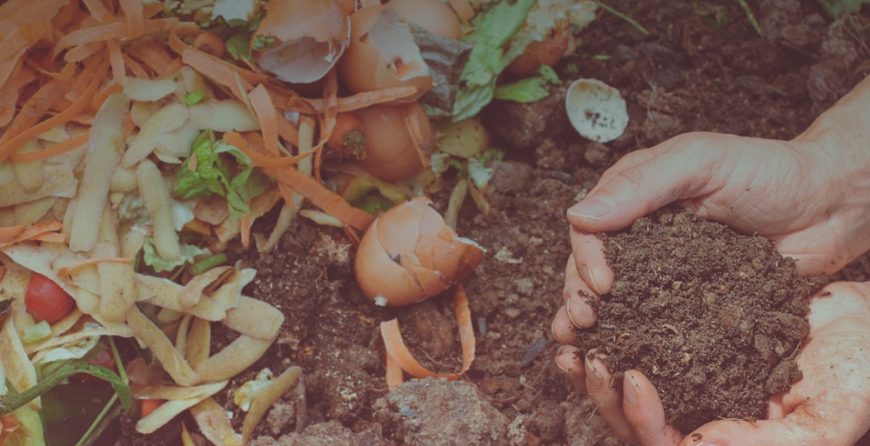 Crops feed on the soil. Meaning that, if garden soil is strong, your crops will be healthy and vice versa. However, people have been relying on chemical fertilizers to add soil nutrients and boost crop health. The chemicals used to make the fertilizers are not only detrimental to crops but also the environment and garden soil. For this reason, gardening experts recommend the use of organic compost to boost soil strength and subsequently, crop health. You can either buy ready-made organic compost or make compost from your kitchen and waste scraps. It is easy, inexpensive and more rewarding to make compost if you have the right equipment and materials described below.
Crops feed on the soil. Meaning that, if garden soil is strong, your crops will be healthy and vice versa. However, people have been relying on chemical fertilizers to add soil nutrients and boost crop health. The chemicals used to make the fertilizers are not only detrimental to crops but also the environment and garden soil. For this reason, gardening experts recommend the use of organic compost to boost soil strength and subsequently, crop health. You can either buy ready-made organic compost or make compost from your kitchen and waste scraps. It is easy, inexpensive and more rewarding to make compost if you have the right equipment and materials described below.
Container
A compost container should not be too expensive or fancy.
Its purpose is decomposing organic matter. Therefore, you just need something big enough and strong enough to hold the ingredients in place and provide the perfect environment for beneficial bacteria to heat up and break down the plant matter. You can have a stationary compost container or a rotating container. But, despite the container type you choose, the compost material must be turned periodically to combine the decomposing materials and let in oxygen.
Stationary bins can be simple containers or ventilated cages
that are made from wire mesh fencing materials or wooden crates that have spaces to ensure ventilation. However, they should be properly designed to retain heat and moisture required for the compost to mature. Compost tumblers are easy to turn bins that trigger the composting process; you can have your compost within weeks. Their rotation enhances oxygen infusions and allows better heat retention. Your compost container selection should be based on how much matter you have at your disposal, the space you have and how fast you need the compost. If you choose to work with a stationary bin, locate it in a sunny area so that it can harvest as much heat as possible for quicker results.
Mix the ingredients right
A low maintenance yet effective compost mix combines
moisture, green and brown matter. Grass clippings and kitchen wastes make up the green matter while wood chips, dry leaves, and shredded newspapers make up the brown matter. When adding kitchen waste, get rid of dairy products, fish, and meat since they attract dogs, raccoons and mice. When adding the ingredients, it is advisable to start with woody stems or small branches for good air circulation. Also, each time you add green matter, ensure that you add brown matter as well to retain adequate moisture and air circulation.
Simple chores you must remember
Take care of your compost pile to ensure you get the right
results and add fresh matter often to keep the good bacteria well nourished. Turn the compost often using a pitchfork or compost aerator. Turning ensures that the matter blends well and promotes breaking down of the matter. Ensure that the compost has adequate moisture since little moisture slows down the decomposition process.
Summary
Organic compost is easy to start and manage. So, do not be
afraid of starting big. However, you must be committed to turning the compost weekly or biweekly and adding green and brown matter often.


